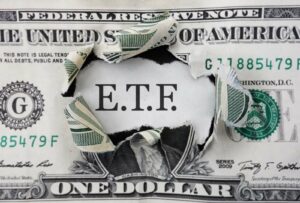The world has gone sideways, and there are 19 Members of Congress whose Quarter 1 trading has been…notable. We’ve not seen the list in one place, so we’re sharing our internal tracking sheet. Fifteen of these have been covered in the broader media, some of whom are covered for that reason alone. Additionally, four are part of our own tracking of notable trades.
What follows is our entirely subjective and completely self-measured of these 19 Members. We’re scoring on two measures, 1-5 points, for a final “weirdness” score. The first is a judgement of “relevance.” How closely do these trades map against the questions: “What we would we do if we knew COVID-19 was coming?” and “How well-positioned were they to know COVID-19 was coming?”
The second scale is one of “irregularity.” That is, how much do these trades stand out from the Member’s historical trading patterns both in terms of each trade’s aggressiveness as an investment and it’s size relative to the Member’s estimated net worth.
The sum is “weirdness.” How weird are these trades, in the context of both that Member’s own trade history and amidst the global pandemic around us? This ranking is entirely subjective, and we hope to never have to use this ranking again. Also, keep in mind: it takes a pretty weird person to run for Congress in the first place.
RANKED: HOW WEIRD ARE THOSE CONGRESSIONAL TRADES?
#1 | Sen. Richard Burr (R-NC) | 10 points | 5 for relevance; 5 for irregularity
Received privileged coronavirus updates, told donors of the risks before the public, sold off $625K+ in stocks mid-February
#2 | Sen. Kelly Loeffler (R-GA) | 9 points | 5 for relevance; 4 for irregularity
Sold an estimated $20 million in stocks before the Quarter 1 market collapse on same day as receiving a relevant Senate Health Committee briefing
#3 | Sen. James Inhofe (R-OK) | 8 points | 5 for relevance; 3 for irregularity |
Sold up to $400,000 in tech company stocks after Senate Health briefing and $50,000+ in assets in early February
#4 | Rep. Alan Lowenthal (D-CA-47) | 7 points | 3 for relevance; 4 for irregularity |
Purchased up to $156,000 in ProShares Short S&P 500 which moves opposite the S&P500 in a 1-to-1 ratio. First purchase in October, but bulk in February and March
#5 | Sen. David Perdue (R-GA) | 6 points | 4 for relevance; 2 for irregularity |
Bought up to $185,000 in stock in a company making personal protective equipment since January
#6 | Rep. Mike Gallagher (R-WI-8) | 6 points | 2 for relevance; 3 for irregularity |
Sold between $104,000 and $685,000 in stocks in late January, likely representing the majority of, if not the entirety of, his investable assets
#7 | Rep. Susan Davis (D-CA-53) | 5 points | 2 for relevance; 3 for irregularity |
In early February sold up to $115,000 in transportation stocks while purchasing up to $150,000 in internet-services and utility companies
#8 | Sen. Dianne Feinstein (D-CA) | 5 points | 4 for relevance; 1 for aggressiveness |
Sold millions in stocks within days of a classified Senate briefing on the coronavirus threat
#9 | Rep. Vern Buchanan (R-FL-16) | 5 points | 3 for relevance; 2 for aggressiveness |
In early January sold up to $3.7 million in state and corporate bonds in a move toward cash
#10 | Sen. John Hoeven (R-ND) | 5 points | 3 for relevance; 2 for irregularity |
Bought up to $250,000 in health sciences fund days after Jan. 24 coronavirus briefing.
#11 | Rep. Greg Gianforte (R-MT At-large) | 4 points | 3 for relevance; 1 for irregularity |
Purchased up to $915,000 in stocks in pharmaceutical, medical supply, and consulting companies. Gianforte says it is his advisors, and not he, who make his portfolio decisions.
#12 | Rep. Scott Peters (D-CA-52) | 4 points | 2 for relevance; 2 for irregularity |
Sold at least $2.75 million in municipal bonds in January, converting them into U.S. treasury bonds
#13 | Scott Sloofman, aide to Sen. McConnell (R-KY) | 4 points | 3 for relevance; 1 for irregularity |
Purchased up to $15,000 in stock in pharmaceutical company developing conoravirus treatments in late January
#14 | Sarah Holmes, aide to Sen. Shaheen (D-NH) | 4 points | 3 for relevance; 1 for irregularity |
Sold up to $15,000 in stock in Delta Airlines and purchased up to $50,000 in stock in Gilead Inc. pharmaceutical company
#15 | Rep. Tom Rice (R-SC-7) | 4 points | 2 for relevance; 2 for irregularity |
Sold between $35,000 and $175,000 in stocks, generally from the energy sector, in an investment pivot into cash
#16 | Sen. Tom Carper (D-DE) | 3 points | 2 for relevance; 1 for irregularity
Purchased and sold thousands of dollars in stocks of companies manufacturing semiconductor and tech/communications products
#17 | Rep. Peter Welch (D-VT At-large) | 3 points | 2 for relevance; 1 for irregularity |
Purchased up to $30,000 in stock in companies focused on coronavirus testing and household cleaners in late February. Reversed trade and says it was initiated by financial advisor.
#18 | Rep. Rob Wittman (R-VA-1) | 3 points | 2 for relevance; 1 for irregularity |
Purchased between $1,000 and $15,000 in stock in pharmaceutical company developing conoravirus treatments in late February
#19 | Sen. Ron Johnson (R-WI) | 2 points | 1 for relevance; 1 for irregularity |
Sold ownership stake in plastics company for up to $25 million in early March





